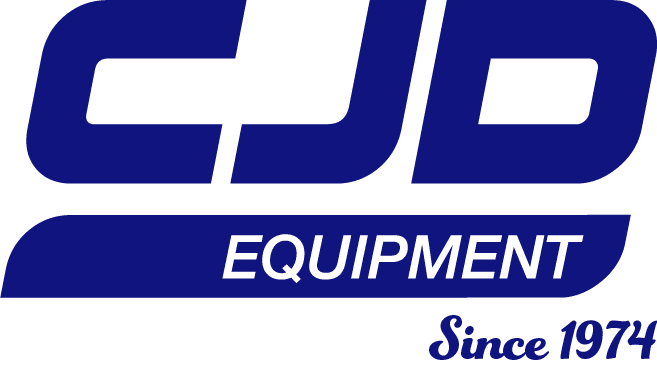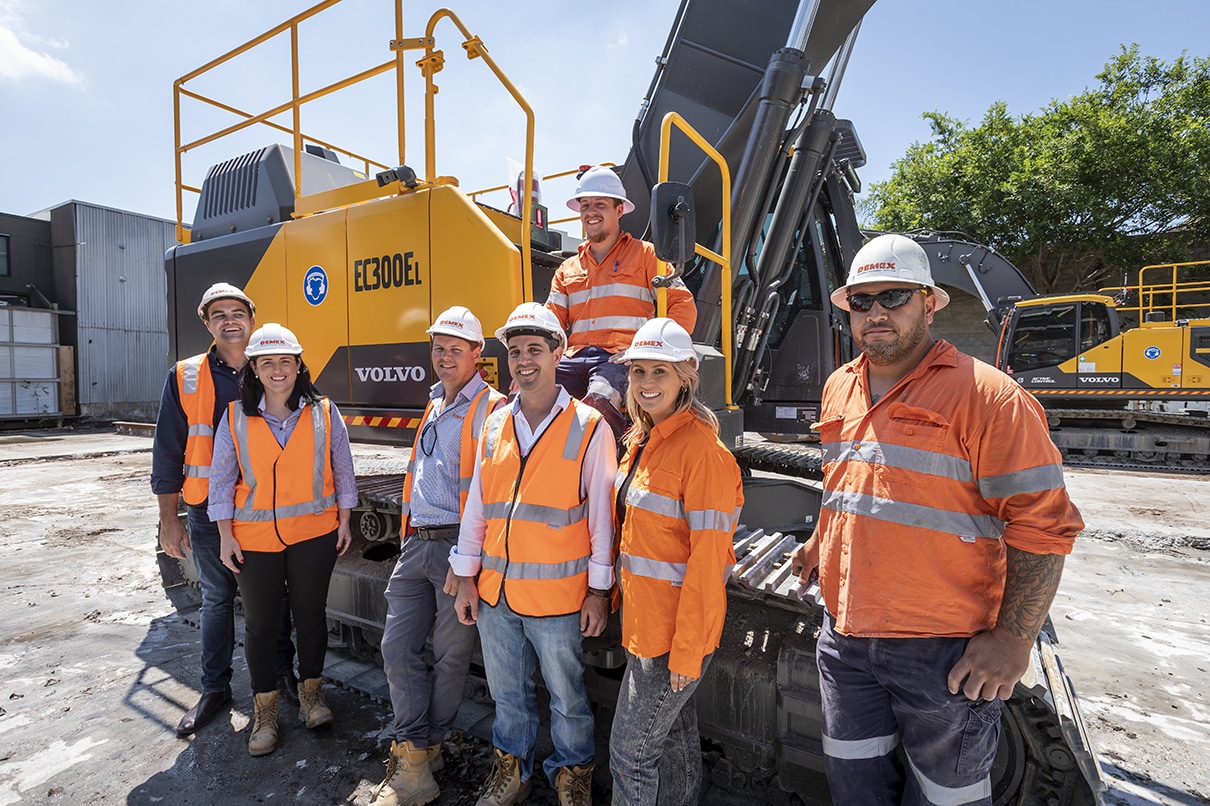Demolition, excavation and site remediation specialist DEMEX collectively draws on close to three decades of industry experience, with the Gold Coast-headquartered operation focused on forming strong relationships with its varied clientele, underpinned by an ability to quickly adapt according to different project requirements and in turn deliver workable solutions.
As DEMEX Director Richard Todd told EEM, the business has undergone a significant evolution in the past decade, having been completely rebranded as part of efforts to expand the scope of its operations, with DEMEX as it is known today having been formed in 2014 as part of The Todd Group.
Richard explained that he has been formally involved with DEMEX and the broader demolition and construction industry for most of his professional life, with the business being very much a family endeavour.
“My parents Richard and Gwen, along with my wife Lauren and I, teamed together to build DEMEX to what it is today,” he commented. “I’ve been in my current role as director for nine years, having assumed responsibility for much of the business management and operations with Lauren.
“We specialise in industrial and commercial demolition, and site remediation works, with a national reach. DEMEX’s vision is to be an industry leader in technical and environmental demolition and remediation.”
DEMEX delivers end-to-end project solutions
Richard told EEM that DEMEX’s services span demolition, excavation, soft stripping, site remediation, civil and earthworks, along with HAZMAT removal services, with the company distinguished by its ability to bring fully integrated, end-to-end project solutions to the table.
In line with this comprehensive approach, he emphasised the company’s commitment to preserving the environment, stating that “DEMEX also provides a recycling service in addition to the business’s core service offering”.
“What sets DEMEX apart is our innovation,” he commented. “We chase a challenge and pride ourselves on devising solutions to even the most complex projects. We think outside the box and make the impossible possible.
“DEMEX currently has 100 employees and continues to grow. As we undertake remote projects, we make a point to bring on new team members from the local area, and often retain them to continue working with DEMEX after the project is completed.”
Richard added that DEMEX is currently working on a number of projects, spanning both urban and rural areas around Queensland, each with its own unique demands.
“The Haughton River bridge demolition near Ayr was an opportunity to highlight our ingenuity,” he commented. “It required that we float an excavator on a barge to access the submerged pylons.
“Meanwhile, at the very southern end of Queensland, near the Tweed Heads NSW border, DEMEX brought down the Komune hotel high-rise complex, and in the heart of the Brisbane CBD you will find us demolishing the University of Queensland dental training facility building on busy Turbot Street.”
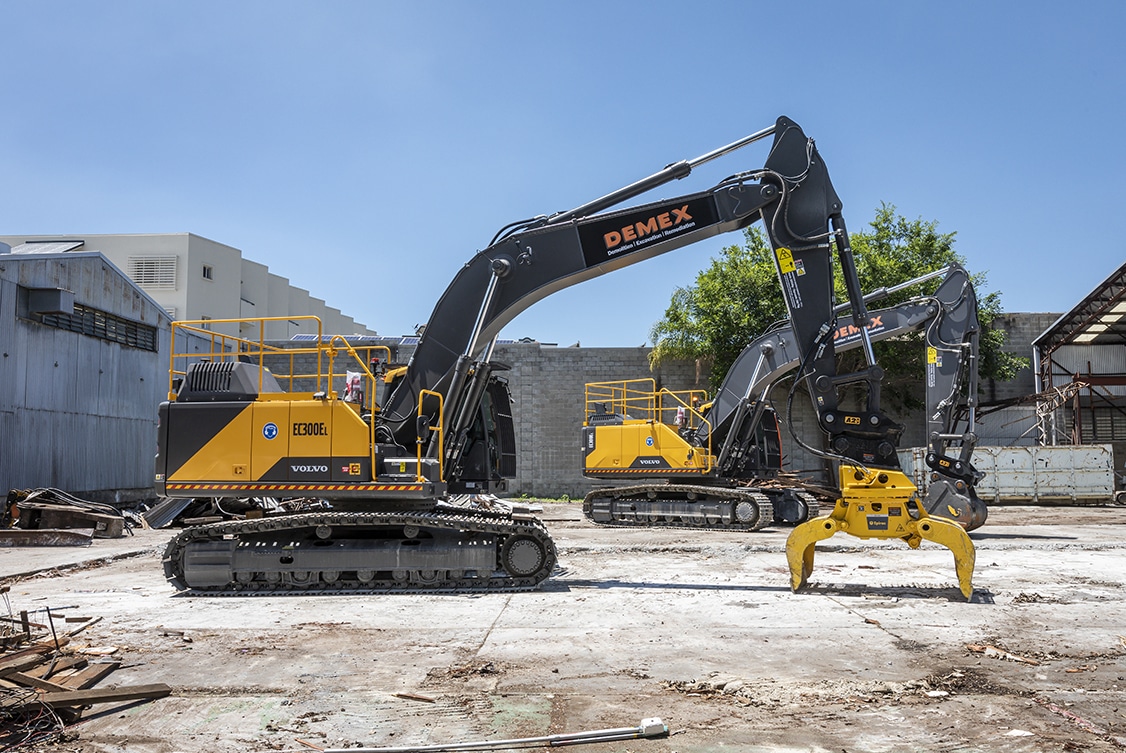
DEMEX focuses on sustainability with Volvo excavators
In tackling a wide scope of projects, DEMEX requires top-notch equipment, capable of adapting to different requirements and getting the job done efficiently, with it having recently taken delivery of two Volvo EC300EDA excavators and a Volvo EC300DL excavator.
Volvo’s EC300E and EC300D models are not only decked out to deliver power and performance across a range of applications, but are also designed to deliver fuel efficiency benefits, respectively sporting Volvo D8J and D7 engines.
Both of these engines have been designed to improve fuel efficiency, with Richard highlighting sustainability as one of the key motivations behind DEMEX’s purchase of the machines.
“As a company operating in the D&C space, we have a responsibility to identify opportunities for reducing our emissions and contribute to a circular economy,” he said. “Our investment in these new machines moves us another step towards fulfilling our obligations around sustainability.”
Richard told EEM that DEMEX currently counts a number of Volvo excavators among its fleet, with the new excavators delivering “on a whole other level”, stating that the machines are “performing to a really high standard”.
“The fuel economy is impressive, and we’re looking forward to being able to record more accurate loads because of the weigh scale system,” he said.
“This will effectively contribute to our compliance under the National Heavy Vehicle Regulator Chain of Responsibility, and our waste data tracking on projects, and help us to achieve accurate weights of loads of material leaving site.”
CJD Equipment keeps DEMEX fleet running smoothly
CJD Equipment Regional Sales Manager Rod Featherstone highlighted the “performance, reliability and low fuel burn” of the Volvo machines, stating that, along with the EC300 models, CJD has also delivered DEMEX two EC380D excavators this year.
Rod, who has been working with DEMEX over the last year, said it has been a “very enjoyable” experience, noting that “Richard drives a very hard bargain, but at the end of the day everyone is happy”.
Additionally, Richard told EEM that DEMEX has enjoyed a productive relationship with CJD over a number of years, highlighting the strong after-sales service which complements its equipment range.
“We’ve had a long relationship with CJD – almost seven years,” he commented. “The parts and field service helps us to keep our fleet on the road, even in remote areas.”
Looking at the wider economic picture for industry, Richard noted that, while business has been good this year, there are still a range of challenges that need to be addressed in dealing with COVID-related issues moving forward.
“Business has been good, and next year looks promising,” he commented. “However, like many in the industry, there have been impacts from COVID, particularly around supply and staff.”
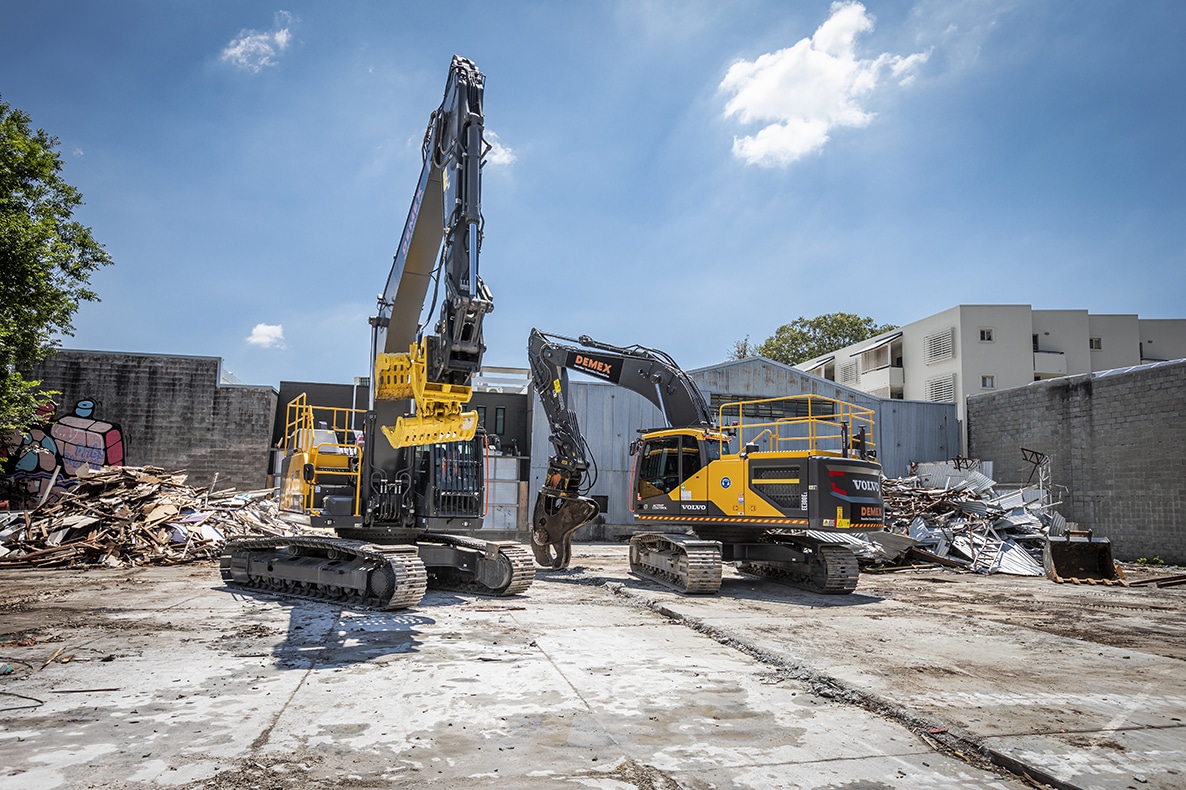
Volvo EC300D excavator specs
The EC300D, weighing in at 30,240 kg (operating weight), is decked out to deliver faster cycle times and greater productivity, with it running a Volvo 169 kW D7 diesel engine.
The EC300D provides a 7-10% increase in fuel efficiency compared to the previous model, and incorporates a number of efficiency features, including auto engine shutdown, which automatically turns the engine off when the machine is inactive for a preset amount of time.
Operators have a choice of work modes, with G4 mode providing optimum fuel efficiency and machine performance, while ECO mode contributes to up to 5% of the machine’s total improved fuel efficiency, without any loss of performance in most operating conditions.
In addition to this, the EC300D features:
- Working range – boom length: 6.2 m; arm length: 3.05 m; maximum dig depth: 7.350 m; maximum reach at ground level: 10.52 m
- Increased power – compared to the previous model, hydraulic pump flow has improved by 5%, with digging force, swing torque and tractive force having increased by 3-5%, while engine power has increased by 11%
- Robust design and improved controllability – the boom and arm have been reinforced in critical areas to equally distribute mechanical stresses, handling increased working power, while Volvo’s smart hydraulic system increases controllability, improving both grading and combined operations
- Operator comfort – the cab encompasses slim cab pillars, large expanses of glass, an adjustable seat and easy-to-access controls, with the climate control system providing air circulation and defrosting via 14 well-spaced vents; a colour LCD monitor, sporting an anti-glare, tiltable screen, displays machine status information, including fuel consumption details and service interval alerts
- Maintenance and service – has been designed to be straightforward, with safe and easy access to centralised filters and grouped greasing points, while large doors and an engine hood, capable of being fully opened, provide easy service access to components
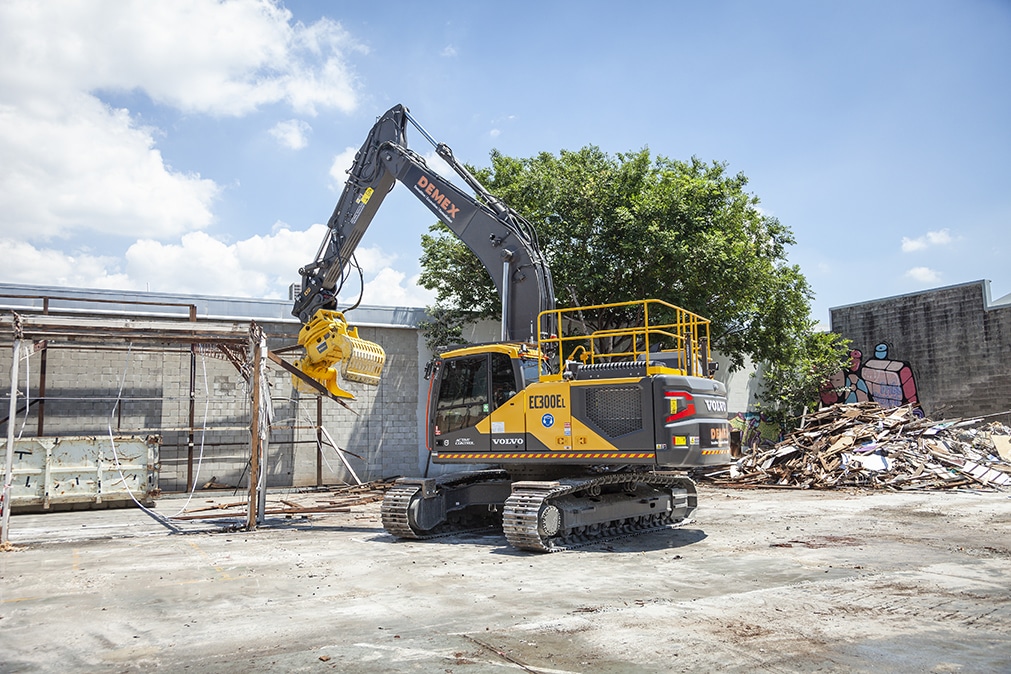
Volvo EC300E excavator specs
The EC300E, weighing in at 29,520 kg (operating weight), is designed to reduce fuel consumption and increase productivity, with it running a Volvo 179 kW D8J Stage V diesel engine.
The EC300E’s automatic idling system sees engine speed reduced to idle when the controls are inactive for a preset period of time, while an integrated work mode system provides a number of choices, with G4 mode delivering optimum fuel efficiency and machine performance.
Automatic engine shutdown sees the engine turn off when the machine is motionless for five minutes, while ECO mode optimises the hydraulic system, reducing flow and pressure losses, resulting in improved fuel efficiency without any loss of performance in most operating conditions.
The EC300E additionally features:
- Working range – boom length: 6.2 m; arm length: 3.05 m; maximum dig depth: 7.34 m; maximum reach at ground level: 10.52 m
- Productivity – high pump flow combined with the electro-hydraulic control system creates a faster response and cycle time, with pump input torque also reducing cycle time; the V-ACT system sees the engine and pumps matched to optimise performance; with the boom float function, the pump power for boom lowering can be saved or used for other functions, reducing cycle time
- Robust design – a robust, reinforced structure and high-quality welding is designed to deliver superior strength and durability, including a steel strip, which reinforces and supports the bucket linkage for added strength, a reinforced idler frame, track links and bottom rollers
- Operator comfort – an 8-in non-glare colour LCD monitor displays machine status and information, while a keypad allows the operator to easily navigate through the monitor and activate machine functions, with a hot key feature allowing for customisation of different functions, including air conditioning and lights; a range of functions can also be assigned to a shortcut switch on the joystick
- Attachment management – the attachment management system, controlled via the monitor, stores settings for up to 20 different hydraulic attachments
- Maintenance and service – large, wide-opening compartment doors and grouped service points allow for checks to be carried out faster
